

What is an Open House? A Complete Guide for Buyers and Sellers
Reading Time: 9 minutes
Odds are, if you are a first-time homebuyer , you’ve probably heard the term “open house.” Especially since Covid-19 restrictions are relaxing throughout the country, more and more sellers are opting to host open houses again. But what is an open house? What are the pros and cons of an open house? Check out this guide below to learn all about open houses, whether you’re buying or selling a home , to figure out if hosting an open house is right for you.

What does “open house” mean in real estate?
Open houses are one of the many steps of the home buying or selling process and are a great opportunity for buyers to check out properties and for sellers to attract potential buyers and generate interest in their homes. They are public, informal events hosted by the real estate agent working with the home seller also called the listing agent. They are usually a couple of hours long and potential buyers can drop in to view the home at any time during the open house.
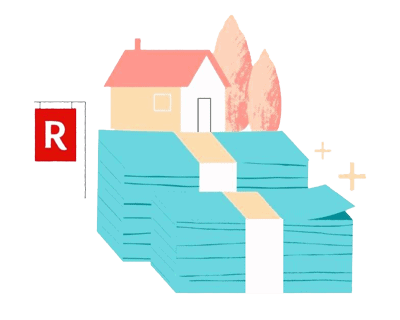
Deciding between renting or buying your next home?
When you first get to an open house, you will likely be greeted by the listing agent . They may ask you to sign in with your name, email, and possibly phone number. Then, you are free to look around the house, exploring all the different areas. There may be water or very light snacks. Almost always, the seller will not be at the open house as it may prevent potential buyers from being able to imagine themselves in the house.
After the open house, the listing agent may follow up with you to see if you liked the house using the information you provided on their sign-in sheet. If you are no longer interested in the home at that point, you can definitely say so. Or, if you want to set up a private tour or write an offer , you can do that too.
Open houses vs private home tours
Open houses are unique because the seller or listing agent can show the property to many people at the same time. And, as a potential buyer, you don’t have to set up an appointment to view the home. You can simply drop by during the hours of the open house. There may also be other real estate agents present. For private home tours, also referred to as private showings, the buyer sets up a one-on-one appointment with the listing agent meaning that you will be the only one viewing the property at that time.
After attending an open house, you may want to see more of the home afterward. Or maybe you still have some questions about the property, and you aren’t positive about putting in an offer yet. In this case, you can set up a private showing with the listing agent, even if you have already attended an open house. This will give you more one-on-one time with the listing agent and the house, and it can allow you to better imagine yourself in the home without a bunch of other people around.
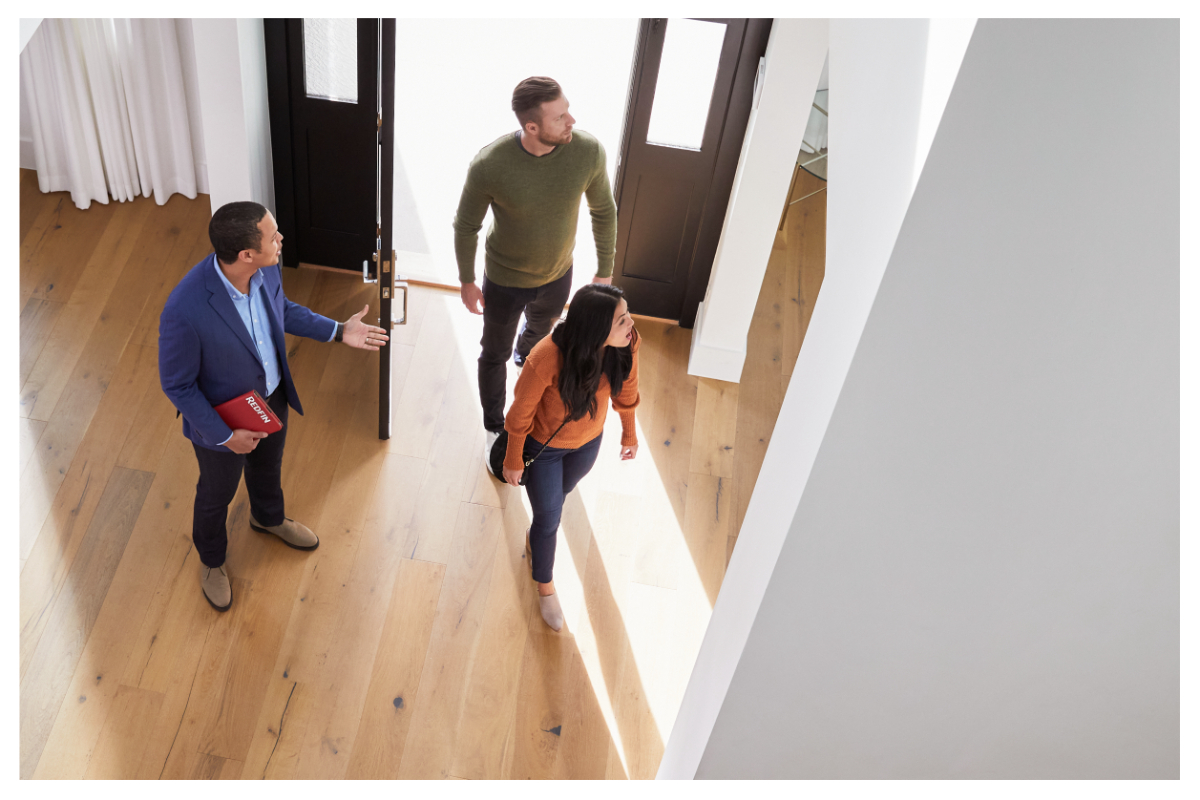
Open houses for first-time homebuyers
What you can expect as a homebuyer.
Open houses can get busy with foot traffic coming through the door, and there are some rules you should know before attending your first one.
Come to an open house prepared
There are a number of etiquette guidelines when it comes to open houses. And if you are serious about buying a house , you want to make sure you are prepared to look like a great buyer for any home you visit. Make sure to know what to look for when touring homes , and come prepared to the open house with the following:
- Basic background info about the home
- A list of questions to ask the listing agent
- A tape measure if you want to make sure your furniture fits in the home
- A way to take notes, such as a notebook and pen or using a smartphone to take videos, pictures, and even your own commentary on each room
When you attend an open house, avoid bringing:
- Children, unless they are older and can help ask questions
The reason you don’t want to bring the above to an open house is that they may disrupt other visitors’ viewing of the home, distract you from seeing the home’s full potential, or even damage the home.
Open house etiquette
Some other rules you should follow when attending an open house are to change into booties if they are offered. Or, take your shoes off if the listing agent requests it.
And, of course, respect the homeowners’ privacy. Don’t look in their medicine cabinet or their dresser. But, it is ok to open their pantry or towel closet to see what kind of storage the home offers.
In general, it’s best not to hold the listing agent hostage as you tour the home. Make sure they are available to chat with other people too. On the flip side, if you are interested in the home, make an effort to introduce yourself to the listing agent. And, of course, try to leave room for other people to tour the home. So, avoid blocking doorways and talking too loudly so that other people can experience the home too.
Following these basic rules will help your case as a buyer and will allow other people to picture themselves in the home as well.
Benefits and downsides of open houses
Especially for first-time homebuyers, there are tons of benefits to attending open houses. Sure, you can see specific houses you like in person to see if they’re “the one.” And, you can also create a list of must-haves, wants, and other things you care about in a home. For example, you may go to an open house where the home has tons of built-ins, and you may love it. Add “built-ins” to your want list for your future home. Or, maybe you find a home with eight-foot ceilings or small, cramped spaces that just don’t work for you — add them to your “no-go” list.
There are a few downsides to open houses though. Sometimes, it’s difficult to view yourself in a home with lots of other people there, which is common at open houses. And, you may not get as much time with the listing agent as you would like to ask questions. One more downside is that open houses usually create lots of interest in a home. So, if you want to write an offer, you may have more competition after an open house.
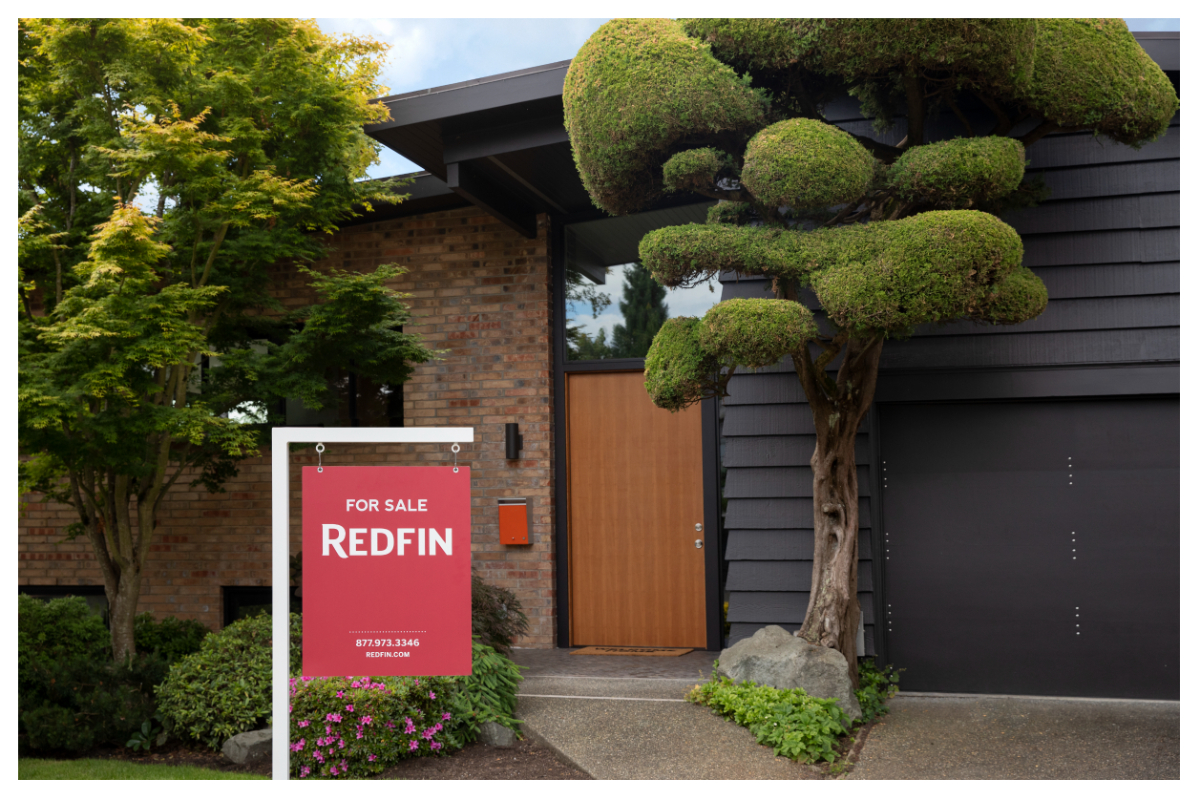
Open houses for first-time home sellers
If you haven’t sold a home before, an open house can be intimidating. There is a good amount of work that goes into an open house. Read on to find out how to prepare your home for an open house and what the benefits and downsides are from the seller’s point of view.
How to prepare your home for an open house
Preparing your home for an open house can be a lot of work, but it can also drum up a lot of interest in your home. The goal of an open house is for prospective buyers to be able to see themselves in your home.
Below is a checklist of tasks to prepare your home for sale you may want to consider doing before having an open house:
- Complete any repairs you may have been putting off
- Remove excess furniture
- Remove personal photos
- Remove children’s artwork and projects
- Remove pet accessories, dishes, and toys
- Hide valuables
- Add flowers throughout your home
- Make up beds in the home with fresh sheets
- Make sure there are no foul or moldy smells in your home
- Stage your home
Additionally, it can be useful to add a special touch to your open house. Potential buyers may go to multiple open houses in one day. And at the end of the day, you want them to remember your house best. If you want to feature your gorgeous backyard, you could set up your barbecue and outdoor living space for potential buyers to show off the space.
Your listing agent may also bring water or snacks to the open house, especially if the drinks or food are made by local businesses they want to highlight. However, offering these items to guests has become less common since Covid.
Lastly, you should make sure that you and your family members and pets have somewhere else to be for the entire duration of the open house.
Open houses allow people to get a feel for your home. And they can do it in a way that allows them to ask the listing agent questions without the pressure of having the listing agent hovering over them for the whole tour. This can lead to offers on your home. Plus, your agent only has to be at your home for a few hours instead of scheduling tons of individual home tours. And that means you only have to clean up your home once.
There are some downsides to open houses though. Although it is extremely uncommon, some sellers worry that visitors will steal from or damage their home. If you are especially concerned about this, it’s best to have minimal objects in your home and ask your agent to monitor guests closely.
Another downside is that some guests may not be qualified to buy your home. Or, maybe they are just curious neighbors who just want to see what the inside of your home looks like. Nevertheless, most people at your open house will be interested in buying. So, all the effort you put into tidying your home will almost certainly be worth it.
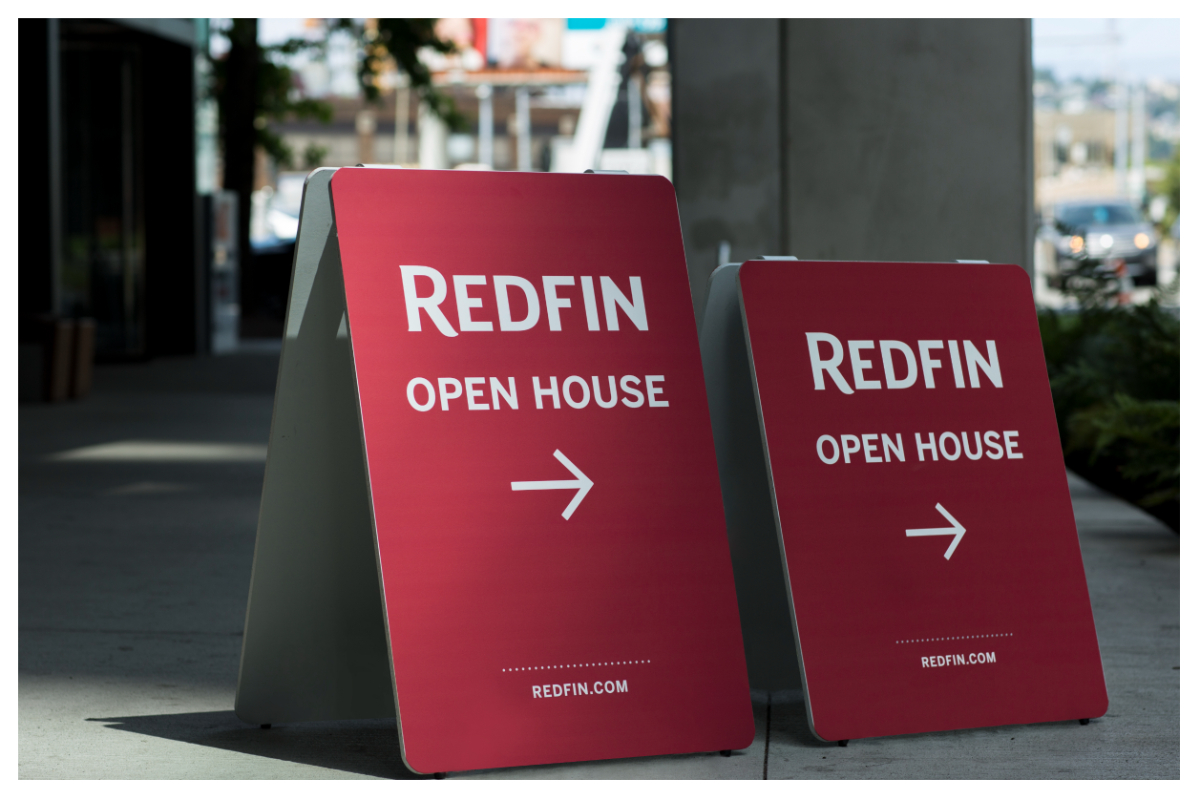
When should you have an open house and for how long?
The best time for an open house is off-peak times when people are less likely to be working or attending their kids’ activities. Most real estate agents will host open houses on Saturdays and Sundays and on weekday evenings. Sunday afternoons are a particularly common time to host open houses.
Most listing agents recommend having an open house shortly after your home hits the market, but later open houses can help generate interest too. You can also host an open house after a price decrease in order to find new people interested in your home.
You may wonder: how long is an open house? Most open houses are one hour to three hours long, depending on when they are. For example, evening open houses may only be an hour. Weekend open houses maybe three or even four hours long. Remember that your open house can only be as long as you and your family (and your pets) can stay out of the house and as long as your real estate agent’s schedule allows.
How to promote your open house
While some people may think that promoting open houses is more complicated nowadays, Covid has popularized new ways of promoting and offering open houses. For example, it is common for listing agents to live-stream an open house. Live-streaming allows buyers to view the home in a new light, not just through photos. Listing agents can offer open houses over video conferencing apps such as Zoom as well, which means you can view a home even if you are out of town.
Other ways to promote your open house are to show videos or photos of your home via social media platforms such as Facebook, Instagram, Snapchat, and TikTok. You can of course show photos and videos of your own home. But your listing agent may be able to advertise your property via their social media accounts and their company’s social media accounts too in order to motivate buyers to place an offer.
What is a good turnout for an open house?
Because there are so many unique homes on the market, it is hard to say what a good turnout for an open house is. Sometimes, you may get fewer people at an open house if your home is at a particularly high price point. Or, you may get more people touring your home but they could just be curious neighbors, or people that are not serious buyers. Most listing agents aim to have about 10-20 people visit a home at an open house. But, the real way to see if an open house is a well-executed event is to see how many people submit offers or request individual tours afterward.
Do open houses actually help sell a home?
Although open houses can be a lot of work to put on, they are a great tool for sellers. And, they are an accessible, non-intimidating way for homebuyers to get to know the housing market . If you are considering attending or hosting an open house, chat with your real estate agent to see what they think and if they have any tips to offer.
How to find open houses near you
There are plenty of ways to find open houses near you. You can ask your agent and your network if there are any upcoming open houses you should attend. You can also use Redfin to find tons of open houses near you. To do this, go to Redfin’s open houses near me page.
On the page, input your desired location of where you want to search for open houses.

Then, input your price range and click search.

From there, you will be taken to a map page with a list of all open houses happening within your search criteria.

Redfin does not provide legal, tax, or financial advice . This article is for informational purposes only and is not a substitute for professional advice from a licensed attorney, tax professional, or financial advisor.
Content Marketing Manager
Ryan Castillo is a Marketing Manager and has been working at Redfin for the last four years. He is based in New York City and enjoys attending broadway shows, playing pickleball, and collecting vinyl records. His dream home would be a large cape cod-style house by the beach.
Find the right loan for the home you love
Popular homes for sale.

Browse homes you'll love
Relevant articles.

Can I Back Out of a Contract with a Real Estate Agent? Here’s What You Need to Know

What is Buyer Agency Compensation?

Do You Have to Pay A Real Estate Agent if You Decide Not to Buy or Sell A House?

How to Get the Best Mortgage Rate

How to Save for a Down Payment in 7 Steps
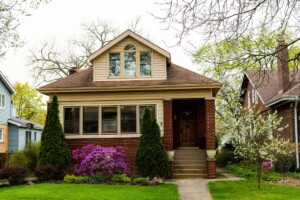
Home Buying Checklist: A Step-by-Step Survival Guide for the Home Buying Process
Popular posts, latest posts.

15 Popular Phoenix Neighborhoods: Where to Live in Phoenix in 2024

15 Popular Detroit Neighborhoods: Where to Live in Detroit in 2024

The Advantages of Buying a Home in the Off-Season

8 South Lake Union Apartment Buildings for Your Next Seattle, WA Rental

7 Capitol Hill Apartment Buildings to Explore in Seattle, WA

4 Ballard Apartment Buildings to Check Out in Seattle, WA

22 Popular Los Angeles Neighborhoods: Where to Live in Los Angeles in 2025

17 Popular New Orleans Neighborhoods: Where to Live in New Orleans in 2025

25 Popular Portland Neighborhoods: Where to Live in Portland in 2025

16 Popular San Antonio Neighborhoods: Where to Live in San Antonio in 2025

19 Popular Denver Neighborhoods: Where to Live in Denver in 2025

21 Popular Washington, DC Neighborhoods: Where to Live in Washington, DC in 2025
Follow redfin, connect with a redfin agent.
- Albuquerque Real Estate
- Alexandria Real Estate
- Anchorage Real Estate
- Arlington Real Estate
- Ashburn Real Estate
- Atlanta Real Estate
- Aurora Real Estate
- Austin Real Estate
- Bakersfield Real Estate
- Baltimore Real Estate
- Baton Rouge Real Estate
- Beaverton Real Estate
- Bend Real Estate
- Birmingham Real Estate
- Boca Raton Real Estate
- Boise Real Estate
- Boston Real Estate
- Boulder Real Estate
- Bowie Real Estate
- Brentwood Real Estate
- Buffalo Real Estate
- Burlington Real Estate
- Cape Coral Real Estate
- Chandler Real Estate
- Charleston Real Estate
- Charlotte Real Estate
- Chattanooga Real Estate
- Chicago Real Estate
- Cincinnati Real Estate
- Colorado Springs Real Estate
- Columbia Real Estate
- Columbus Real Estate
- Dallas Real Estate
- Denver Real Estate
- Des Moines Real Estate
- Detroit Real Estate
- El Paso Real Estate
- Elk Grove Real Estate
- Eugene Real Estate
- Fairfax Real Estate
- Flagstaff Real Estate
- Fort Collins Real Estate
- Fort Lauderdale Real Estate
- Fort Myers Real Estate
- Fort Worth Real Estate
- Frederick Real Estate
- Fremont Real Estate
- Fresno Real Estate
- Frisco Real Estate
- Gilbert Real Estate
- Glenview Real Estate
- Henderson Real Estate
- Honolulu Real Estate
- Houston Real Estate
- Indianapolis Real Estate
- Irvine Real Estate
- Jacksonville Real Estate
- Jersey City Real Estate
- Kansas City Real Estate
- Knoxville Real Estate
- Lake Tahoe Real Estate
- Las Vegas Real Estate
- Little Rock Real Estate
- Long Island Real Estate
- Los Angeles Real Estate
- Louisville Real Estate
- Madison Real Estate
- Manhattan Real Estate
- Manteca Real Estate
- Memphis Real Estate
- Mesa Real Estate
- Miami Real Estate
- Milwaukee Real Estate
- Minneapolis Real Estate
- Modesto Real Estate
- Myrtle Beach Real Estate
- Naperville Real Estate
- Naples Real Estate
- Nashua Real Estate
- Nashville Real Estate
- New Orleans Real Estate
- New York Real Estate
- Newton Real Estate
- Oakland Real Estate
- Oklahoma City Real Estate
- Omaha Real Estate
- Orland Park Real Estate
- Orlando Real Estate
- Palm Springs Real Estate
- Philadelphia Real Estate
- Phoenix Real Estate
- Pittsburgh Real Estate
- Plainfield Real Estate
- Plano Real Estate
- Portland Real Estate
- Providence Real Estate
- Quincy Real Estate
- Raleigh Real Estate
- Rancho Cucamonga Real Estate
- Reno Real Estate
- Richmond Real Estate
- Riverside Real Estate
- Rochester Real Estate
- Sacramento Real Estate
- Salem Real Estate
- Salt Lake City Real Estate
- San Antonio Real Estate
- San Diego Real Estate
- San Francisco Real Estate
- San Jose Real Estate
- San Luis Obispo Real Estate
- Santa Clarita Real Estate
- Santa Fe Real Estate
- Sarasota Real Estate
- Savannah Real Estate
- Schaumburg Real Estate
- Scottsdale Real Estate
- Seattle Real Estate
- Silver Spring Real Estate
- Sioux Falls Real Estate
- St. Louis Real Estate
- Stamford Real Estate
- Stockton Real Estate
- Tacoma Real Estate
- Tampa Real Estate
- Temecula Real Estate
- Tucson Real Estate
- Tulsa Real Estate
- Virginia Beach Real Estate
- Washington, DC Real Estate
- West Palm Beach Real Estate
- Wilmington Real Estate
- Woodbridge Real Estate
- Worcester Real Estate
- Alabama • Homes for sale
- Alaska • Homes for sale
- Arizona • Homes for sale
- Arkansas • Homes for sale
- California • Homes for sale
- Colorado • Homes for sale
- Connecticut • Homes for sale
- Delaware • Homes for sale
- Florida • Homes for sale
- Georgia • Homes for sale
- Hawaii • Homes for sale
- Idaho • Homes for sale
- Illinois • Homes for sale
- Indiana • Homes for sale
- Iowa • Homes for sale
- Kansas • Homes for sale
- Kentucky • Homes for sale
- Louisiana • Homes for sale
- Maine • Homes for sale
- Maryland • Homes for sale
- Massachusetts • Homes for sale
- Michigan • Homes for sale
- Minnesota • Homes for sale
- Mississippi • Homes for sale
- Missouri • Homes for sale
- Nebraska • Homes for sale
- Nevada • Homes for sale
- New Hampshire • Homes for sale
- New Jersey • Homes for sale
- New Mexico • Homes for sale
- New York • Homes for sale
- North Carolina • Homes for sale
- Ohio • Homes for sale
- Oklahoma • Homes for sale
- Oregon • Homes for sale
- Pennsylvania • Homes for sale
- Rhode Island • Homes for sale
- South Carolina • Homes for sale
- South Dakota • Homes for sale
- Tennessee • Homes for sale
- Texas • Homes for sale
- Utah • Homes for sale
- Vermont • Homes for sale
- Virginia • Homes for sale
- Washington • Homes for sale
- West Virginia • Homes for sale
- Wisconsin • Homes for sale
- Albuquerque apartments for rent
- Alexandria apartments for rent
- Arlington apartments for rent
- Atlanta apartments for rent
- Augusta apartments for rent
- Austin apartments for rent
- Bakersfield apartments for rent
- Baltimore apartments for rent
- Barnegat apartments for rent
- Baton Rouge apartments for rent
- Birmingham apartments for rent
- Boston apartments for rent
- Charlotte apartments for rent
- Chattanooga apartments for rent
- Chicago apartments for rent
- Cincinnati apartments for rent
- Cleveland apartments for rent
- Columbia apartments for rent
- Columbus apartments for rent
- Dallas apartments for rent
- Dayton apartments for rent
- Denver apartments for rent
- Detroit apartments for rent
- Durham apartments for rent
- Fayetteville apartments for rent
- Fort Worth apartments for rent
- Fresno apartments for rent
- Greensboro apartments for rent
- Houston apartments for rent
- Huntsville apartments for rent
- Indianapolis apartments for rent
- Irving apartments for rent
- Jacksonville apartments for rent
- Kansas City apartments for rent
- Knoxville apartments for rent
- Las Vegas apartments for rent
- Los Angeles apartments for rent
- Louisville apartments for rent
- Macon apartments for rent
- Marietta apartments for rent
- Melbourne apartments for rent
- Memphis apartments for rent
- Mesa apartments for rent
- Miami apartments for rent
- Milwaukee apartments for rent
- Minneapolis apartments for rent
- Mobile apartments for rent
- Murfreesboro apartments for rent
- Nashville apartments for rent
- New York apartments for rent
- Norfolk apartments for rent
- Oklahoma City apartments for rent
- Omaha apartments for rent
- Orlando apartments for rent
- Pensacola apartments for rent
- Philadelphia apartments for rent
- Phoenix apartments for rent
- Pittsburgh apartments for rent
- Plano apartments for rent
- Portland apartments for rent
- Raleigh apartments for rent
- Reno apartments for rent
- Richmond apartments for rent
- Riverside apartments for rent
- Rochester apartments for rent
- Sacramento apartments for rent
- Saint Louis apartments for rent
- Saint Petersburg apartments for rent
- San Antonio apartments for rent
- San Diego apartments for rent
- Savannah apartments for rent
- Seattle apartments for rent
- Springfield apartments for rent
- Tampa apartments for rent
- Tempe apartments for rent
- Tucson apartments for rent
- Tulsa apartments for rent
- Virginia Beach apartments for rent
- Washington apartments for rent
- Abilene houses for rent
- Albany houses for rent
- Amarillo houses for rent
- Arlington houses for rent
- Atlanta houses for rent
- Augusta houses for rent
- Austin houses for rent
- Bakersfield houses for rent
- Birmingham houses for rent
- Charlotte houses for rent
- Chesapeake houses for rent
- Chicago houses for rent
- Clarksville houses for rent
- Columbia houses for rent
- Columbus houses for rent
- Concord houses for rent
- Dallas houses for rent
- Dayton houses for rent
- Denver houses for rent
- Destin houses for rent
- Dothan houses for rent
- El Paso houses for rent
- Eugene houses for rent
- Fayetteville houses for rent
- Fort Wayne houses for rent
- Fresno houses for rent
- Greensboro houses for rent
- Greenville houses for rent
- Griffin houses for rent
- Hampton houses for rent
- Henderson houses for rent
- Houston houses for rent
- Huntsville houses for rent
- Indianapolis houses for rent
- Jackson houses for rent
- Jacksonville houses for rent
- Kissimmee houses for rent
- Knoxville houses for rent
- Lafayette houses for rent
- Lakeland houses for rent
- Lancaster houses for rent
- Lansing houses for rent
- Lawton houses for rent
- Macon houses for rent
- Marietta houses for rent
- Memphis houses for rent
- Mesa houses for rent
- Mobile houses for rent
- Montgomery houses for rent
- Murfreesboro houses for rent
- Nashville houses for rent
- Orlando houses for rent
- Pensacola houses for rent
- Phoenix houses for rent
- Port Saint Lucie houses for rent
- Portland houses for rent
- Raleigh houses for rent
- Reno houses for rent
- Richmond houses for rent
- Riverside houses for rent
- Roanoke houses for rent
- Sacramento houses for rent
- Saint Petersburg houses for rent
- Salem houses for rent
- San Antonio houses for rent
- Savannah houses for rent
- Spokane houses for rent
- Springfield houses for rent
- Stockton houses for rent
- Tampa houses for rent
- Toledo houses for rent
- Tucson houses for rent
- Tyler houses for rent
- Valdosta houses for rent
- Vancouver houses for rent
- Waco houses for rent
- Warner Robins houses for rent
- Wichita houses for rent
- Wilmington houses for rent

Updated January 2020: By searching, you agree to the Terms of Use , and Privacy Policy .
REDFIN IS COMMITTED TO AND ABIDES BY THE FAIR HOUSING ACT AND EQUAL OPPORTUNITY ACT. READ REDFIN’S FAIR HOUSING POLICY .
Copyright: © 2022 Redfin. All rights reserved. Patent pending.
REDFIN and all REDFIN variants, TITLE FORWARD, WALK SCORE, and the R logos, are trademarks of Redfin Corporation, registered or pending in the USPTO.
California DRE #01521930
NY Standard Operating Procedures
TREC: Info About Brokerage Services , Consumer Protection Notice
If you are using a screen reader, or having trouble reading this website, please call Redfin Customer Support for help at 1-844-759-7732.
What is an Open House? Everything Home Sellers Should Know
- Attract Buyers
- Open Houses
- Published on August 14th, 2023
- 13 min read
Lauren is a writer based in Rhode Island. She attended Brown University, where she earned a B.A. in History with a concentration in East Asia. Her work can be found in Southern Rhode Island Newspapers, Brown University's Next Generation, and Awkward & Out.
Taryn Tacher is the senior editorial operations manager and senior editor for HomeLight's Resource Centers. With eight years of editorial and operations experience, she previously managed editorial operations at Contently and content partnerships at Conde Nast. Taryn holds a bachelor's from the University of Florida College of Journalism, and she's written for GQ, Teen Vogue, Glamour, Allure, and Variety.
- Share on LinkedIn
- Share on Twitter
- Share on Facebook
- Share by Email
- Save to Pinterest
Open houses have long stood as a traditional and effective method for showcasing a property to potential buyers. It’s an event where homeowners and real estate agents come together to present a home in its best light.
For buyers, open houses offer a tangible, unfiltered experience of a property — far beyond what photos or virtual tours can provide. Meanwhile, sellers seize this opportunity to highlight their home’s unique features, aiming to create a lasting impression that could expedite their sale.
We’ll discuss the ins and outs of open houses, the pros and cons of having one, and what you can do as the seller to ensure a successful open house.
Step one: Talk to an expert!
Selling your house soon? Connect with a top agent near you to get an expert opinion on how much your house will sell for, what to fix before listing, and the latest local housing market trends.
The history of open houses
Open houses are one of the oldest real estate marketing tricks in the book. The long-standing tradition began in the 1910s as a perk that came with signing an exclusive contract to sell a home.
Prior to the dawn of open houses, anyone could be a real estate agent, so you didn’t need to have a broker’s license to sell a home. As competition among real estate agents became more fierce, exclusive contracts allowed agents to bind themselves contractually to a family and their property to guarantee they would make money off the sale.
With this exclusive representation, agents started to label homes as “open for inspection” and invite the public to tour the home. The first open houses would last days or weeks and were primarily used to sell new homes that would pique the public interest in the developing architectural styles of the time.
What’s the definition of an open house today?
Today, a real estate open house is a marketing event held for a short period of time (usually 2-4 hours on the weekend or in the evening during the week) for the general public to pop by and view a house for sale. Open houses differ from home showings in that they’re not appointment-based and anyone can show up .
An open house is hosted by the listing agent, who represents the seller of the home. It’s the listing agent’s job to show visitors around the house, point out its highlights, and answer potential buyers’ questions about the home’s history, updates, and condition.
The purpose of an open house is to generate buzz and drum up interest in a home to secure a competitive offer, but in some cases, an open house may be more effective in building an agent’s business than actually selling the home.
What happens during an open house?
During an open house, visitors are typically greeted by the listing agent who often provides property brochures or spec sheets detailing the home’s features, square footage, and other important details. Many agents require visitors to sign in, capturing their contact information for follow-up conversations and feedback.
As potential buyers explore the property, they’ll have the freedom to roam from room to room, envisioning themselves in the space. They might test water pressures, open closets to gauge storage, or stand by windows to consider the views.
The agent is available to answer questions, highlight the home’s standout features, and provide insights on the local neighborhood, schools, and amenities. Sometimes, an open house might feature light refreshments, soft background music, or even a professional home stager’s touch to enhance the home’s appeal.

What are the benefits of hosting an open house?
Beyond the obvious goal of showcasing the home, an open house serves multiple purposes. It’s a chance for real estate agents to engage directly with potential buyers, gauge their reactions, and gather real-time feedback for the seller. It’s also an opportunity to cast a wide net, drawing in a diverse group of prospects in a short period of time.
According to Marine Yoo, one of Madison, Wisconsin’s top-selling real estate agents, an open house can be used as a tool to heighten the appeal of your home and motivate buyers to make an offer quickly. If an interested buyer knows that your property is hot and will draw in lots of traffic, they’ll be more inclined to make a competitive offer before the open house even occurs.
“There are two ways that an open house can spur interest in a house and really help a seller,” says Yoo. “One of them is to basically spark a fire under a buyer. So, if a buyer knows that a home is available for sale, and they see an open house is coming up in five days, they know there’s probably decent traffic coming to the open house. So the advice we give all our buyers is, see the property privately right now before all these potential buyers come on Sunday.”
Yoo says that an open house could also be used as the one and only chance for interested buyers to view the property. This way, serious buyers can get a look at the home and the competition when they make their offer to the seller.
“Realtors may opt to decline any showings until the open house, and that strategy drives more traffic,” explains Yoo.
What are the drawbacks of hosting an open house?
An open house is a great way to play up the high demand for your property, but there are some downsides to hosting one.
There’s no guarantee that buyers will show up
Open houses have fallen down the list of effective marketing tactics for home sales. Only 1% of home buyers visited an open house as the first step of their house search in 2023, while just 4% found the home they ended up purchasing from an open house sign. This is largely due to the widespread use of listing services, high-definition photographs, and virtual tours that can be found on the internet.
Open houses can present a security risk to your home
Some sellers have reservations about hosting open houses because they fear that they’re exposing their home to possible damage or theft. If the house doesn’t sell quickly, your real estate agent may end up hosting multiple open houses, exposing your home to a lot of people , in which case, private showings may be a better way to go.
Open houses cost time and money
Open houses can cost sellers time if their home continues to sit on the market. All of that money you’ll spend on premium upkeep, pet and childcare, heating and cooling the home on the day of the open house(s) can start to add up.
When is the best time to host an open house?
The best time to host an open house is on the weekend when potential buyers are available and have time to check out your home after running their morning errands.
In larger metro areas, traffic tends to pick up in the afternoon, so if your property is in the city, you’ll likely want to host your open house anywhere between 11 a.m. and 3 p.m. In the suburbs, traffic is not as much of a concern; host your open house between noon and 4 p.m.
Keep your open house to about two hours. According to Yoo, you want potential buyers to know that there is a limited amount of time for them to see the home. Your home is valuable, and by providing a short window to view it, you’ll be giving buyers what they’ll think is an exclusive look at an in-demand house.
What can a seller do to guarantee a successful open house?
Here are a few things you should do before you let all of those strangers flood into your home.
Deep clean and declutter your home
It should go without saying, but your home should be spotless before potential buyers arrive. Deep cleaning and decluttering will improve first impressions and can even add $8,000 of resale value on average , according to HomeLight’s Summer 2023 Top Agent Insights Report. If you need to, hire a professional cleaning service for $30 to $50 per hour to get the job done.
Invest in home staging
When potential buyers enter your home, you want them to be able to picture what their life would be like if they lived there. Hire a staging company to change out and rearrange your furniture, paint your walls — we recommend a nice neutral beige tone — and let in natural light. Agents estimate that staging your home increases its value by 18% .
Advertise your open house on the internet
96% of home buyers use the web in their search for a new home. Your agent will advertise your open house on the internet — on the multiple listing service (MLS) and the top real estate listing websites that share open house event details, such as Trulia, Zillow, and Redfin. You can also post your open house on places like Nextdoor, Craigslist, and Facebook Marketplace.
Promote the event with physical signs
Even though the internet is a reliable, efficient information resource for open houses, lawn signs on the day of your event are a must. Be sure to set up ample signage guiding buyers to your open house, so they have no trouble finding the home.
Keep your messaging simple. For example, your sign might say “Open House Next Left.” Signs should also be in bright colors, so they stand out.
What’s an agent’s job during the open house?
An agent’s job during an open house is to be the steward of your home. That means that he or she will welcome guests into the house, answer questions about the home, and keep track of guests that enter and exit the property in order to follow up with potential buyers who seem interested.
“Visitors have to sign in no matter what, or else they’re not getting to tour the house,” says Yoo. “Any good Realtor worth their salt will hunt that buyer down — and I use that obviously as a joking manner — to the ends of the earth to see if they have any further interest.”
In fact, it’s a good idea to leave the actual open house to your agent. When the owner of a home is present during an open house, potential buyers can find it difficult to be fully honest with the real estate agent about what they find displeasing.
“People just do not feel comfortable talking about a property and being critical about a property — even if it’s just being constructive — if the homeowner is there,” Yoo says.
Broker’s opens: An alternative to the traditional open house
Unlike traditional open houses, which invite the general public, a broker’s open caters specifically to real estate agents and professionals. Held during a weekday, this event provides an opportunity for agents to preview the property on behalf of their potential buyers. Given the professional nature of attendees, these events can be more focused, allowing the listing agent to gather valuable feedback on pricing, staging, and any possible issues that might deter potential buyers.
The advantage of a broker’s open is twofold. For sellers, it can lead to quicker offers since agents who see the property might believe it’s a perfect fit for one of their clients. For agents, it offers an exclusive look at a listing, allowing them to be more efficient in their property selections for buyers. By utilizing broker’s opens, many properties get significant initial exposure to the real estate community, potentially streamlining the selling process.
An experienced real estate agent will know whether an open house or broker’s open is the right choice for your home. HomeLight can connect you with a top agent in your market who will help you prep your house for sale, market it effectively to get interested buyers in the door, and be present at the open house or broker’s open to showcase all your home has to offer.
Header Image Source: (Markus Spiske / Unsplash)
Open house FAQ
While open houses can increase exposure for a property, they aren’t mandatory. Some sellers find success without them, relying on online listings and private showings. The effectiveness of an open house can vary based on the local market, property type, and price range.
Preparation includes decluttering , deep cleaning , and staging the home to make it appealing to potential buyers. Personal belongings should be minimized to allow visitors to envision themselves in the space. Some sellers also invest in professional staging or make minor repairs based on agent recommendations.
It’s a good practice to remove or securely store valuable items like jewelry, electronics, and personal documents. Some sellers choose to install temporary security cameras for added peace of mind. Your real estate agent will generally be present to monitor visitors, but it’s a good idea to take extra precautions.
Typically, the listing agent or a member of their team will host the open house. They will guide potential buyers, answer questions, and gather feedback. It’s also a chance for the agent to meet potential clients.
Feedback can be immediate, with some agents and potential buyers providing insights during or right after the event. However, offers might take a bit longer, ranging from a few hours after the open house to several days, depending on the buyer’s interest level and market dynamics.
- "House Cleaning Costs: Find Out What a House Cleaner Charge," Angi (November 2022)
- "What Is a Broker’s Open House and Why Should You Host One?", Angi (April 2022)
- "Home Buyers and Sellers Generational Trends", National Association of Relators® (March 2023)
At HomeLight, our vision is a world where every real estate transaction is simple, certain, and satisfying. Therefore, we promote strict editorial integrity in each of our posts.
Lauren Vella
Contributing Author
Taryn Tacher
Senior Editor
Why use a Realtor?
How to choose an agent
How to interview a Realtor
Who pays agent commissions?
Agent commissions calculator
Find a top agent
How long it takes to sell a house
How to market your house for sale
How a home inspection works
What to expect from a home appraisal
How many showings does it take to sell a house?
Fees and costs associated with selling a house
What’s a comparative market analysis (CMA)?
Pricing your home to sell
Expert house-pricing strategies
How to get a home appraisal
Get home value estimate
Home value estimator
Best time to sell calculator
Net proceeds calculator
Cost to sell a house
Documents you need to sell a house
How to market your house
How to sell a house full of stuff
How to buy a house while selling your own
Best time to sell a house
How to sell FSBO
- Search Please fill out this field.
- Manage Your Subscription
- Give a Gift Subscription
- BHG Archives
- Newsletters
- Sweepstakes
- Home Improvement Ideas
- Better Homes and Gardens Real Estate
What Is an Open House? Here's What to Expect
See what experts have to say to make the most of any open houses you’re a part of as a buyer or seller.
Kristine Gill is a former newspaper reporter who spent five years as a spokesperson for a law enforcement agency. She writes about homes and real estate for Better Homes & Gardens.
:max_bytes(150000):strip_icc():format(webp)/KG-4-2000-963cf41d7be046ad927dc435edb59387.jpg)
If you've ever listed your home for sale or driven by a newly listed home, you've likely heard about (or seen signs about) an open house. An open house is an invitation to the public to view a home to generate interest and offers in a newly listed property, and a well-attended open house can lead to a speedy sale.
Whether you're on the market to buy or sell, here's what you can expect during an open house.
What Is an Open House?
Open houses are held to generate interest, attract potential buyers, and help the agent selling the home, says Hao Li, broker with HouseSigma , an AI-powered online brokerage.
" When a seller lists a property for sale, the seller's agent will often hold an open house where anyone who's interested can come inside and tour the home at their own leisure," Li says. "Open houses usually last for about two hours and are normally held over the weekend."
An open house lets prospective buyers and their agents have a look at the property during a designated time, which makes coordinating visits easier on the seller and can attract more people all at once.
"The expectation is that buyers who are in the market for the type of property being offered would be able to view at their convenience," says Julie Longtin, broker-owner of Cityside Properties in Providence, Rhode Island. "You do not have to go through the formality of scheduling a private appointment."
While the goal is to sell the property at hand, agents are also looking to connect with prospective buyers who attend and might be selling their own homes down the road, Li says.
Open houses are usually held soon after a home is listed for sale. "Seller's agents will typically hold open houses the first weekend of a new listing to capitalize on interest in a fresh, just-hit-the-market property," Li says.
Wait much longer to throw an open house, and chances are most potential buyers have already come across your property and either viewed it or ruled it out. Still, an open house can also revitalize interest in a property that's languishing on the market, especially in a highly competitive market.
"Agents are typically holding more open houses than usual for the same listing because listings are sitting on the market longer," Li says. "Buyers are taking their time during this real estate cool down. In general, there are fewer buyers and fewer bidding wars, so homes just aren't selling as fast."
In 2021, an open house could end in multiple offers—not so today. "Buyers are taking their time," Li says. "They no longer feel the need to rush to put in an offer. So sellers will have to be patient and actually wait for days for offers to come in, if any."
Even if an open house doesn't generate an offer, Longtin says it usually offers a real estate agent a ton of information they can use to adjust the listing price or make fixes to the home, especially if they're asking buyers the right questions.
"How well is the property received? Is the property priced right? How does it show to the average person? What are the pros and cons of the subject, and how does that affect the market value? A successful agent would have the tools and the dialogue to gently extract this feedback," she says.
How to Prepare for an Open House as the Seller
Sellers preparing to hold an open house should prepare the way they do for any showing by cleaning, removing personal effects, and leaving the house on the day of the event.
" The best way to hold an open house is to hire an agent who offers staging," Li says. "Clean the property, make sure there's plenty of light and a comfortable ambiance, and tuck personal items out of sight. Especially family photos. Buyers like to picture themselves in the home, so pictures of the current owners hanging on the walls don't help that image."
Longtin stresses that cleanliness is most important on the day of an open house or any showing. "A clean and immaculate property both inside and out is always received better than the alternative," she says. "Make it smell as good as it looks! The more comfortable you make the environment, the longer people stay, the more success you will achieve."
On the day of the event, make yourself (and any family members, children, and pets) scarce and let your agent handle the rest.
"Sellers should stay away during the open house. Resist the urge to peek at what's happening, and whatever you do, do not set up hidden cameras," Li says. "You don't want potential buyers finding a hidden camera and submitting a complaint."
Don't worry if you feel your home gets lots of traffic from folks just browsing for fun. "We all know that the 'Nosy Neighbor' may attend out of curiosity. Not to fret," Longtin says. "Neighbors may have friends or family members who may be a candidate, as well. So, when it comes to open houses, the wider the net, the more fish you can catch!"
What to Expect from an Open House as a Potential Buyer
Anyone can show up to an open house, regardless of whether they're seriously interested in the property.
"Not all buyers are ready to engage with a real estate agent until they have significantly narrowed down their properties of interest, but they are actively looking and are ready to purchase when they see the right property," says real estate agent Kirsten Abney of Better Homes and Gardens Real Estate Gary Greene. "Open houses are a great way for this population of buyers to see the home in person and determine if they have serious interest."
In most regions, you don't need an invite or an RSVP to attend, and you don't have to come with an agent. Do your research on expectations in your area before showing up, though, just to make sure you don't need an appointment: In certain markets, including New York City, open house attendees are often asked to register in advance.
"As buyers, you can simply show up to an open house, even if you're just driving by, or just curious about the property," Li says. "There's no rule that says you must be interested in buying this property in order to attend. That's the advantage of an open house: The agent may just catch the eye of a passerby who becomes smitten with the property."
While visiting, if you do find yourself interested in the property, take your time to decide if the home is a contender—and don't just look at things with rose-colored glasses.
"Visiting an open house is just the same as viewing a home by appointment. Look for the qualities you're looking for in a home," Li says. "Furthermore, pay attention to see if there are any noticeable water stains, cracks on the wall/ceiling, molds in the washroom and kitchen, [or] signs of renovation or cosmetic touch-ups. The list goes on, and the best way is to have an experienced agent along your side when viewing a home."
During an open house, Li says buyers should be asking some very basic questions about the sellers and their reason for moving, how long they stayed at the home, and who lived there, including any pets. Ask about major renovations and any water, fire, or pest damage.
For a comprehensive look at the HVAC and electrical systems, and other non-visible features, talk to your agent. "Good agents will generally have disclosures available at the open house or be willing to email them, so asking for the seller's disclosure is also good," Abney says.
Longtin says many of these questions are best asked by your agent, who can be sure to leverage a deal on your behalf.
"Let your buyer's broker ask the questions so that you do not reveal the level of your interest. Sample questions could be: What is the time frame of the seller? What are the occupancy expectations? Do you have any offers?" she says. "You really do not want to seem overly interested. Those are acceptable questions. People can detect your interest and spur competition! Be mindful of this!"
As you assess the property, consider making an offer as well. While buyers are in control of the market right now, you should always move quickly if you're interested in a property, especially if you've seen others attending the open house.
"Know what you are looking for, keep an open mind, and always be ready to make a move," Li says.
Frequently Asked Questions
An open house can be intimidating for both the seller and potential buyers. Simply use your common sense to ease some of the tension—avoid opening drawers, refrigerators, personal spaces, or any room that’s clearly labeled as out of reach for any reason. As a general rule, try to wait for other potential buyers to finish their viewing before entering that room (unless it’s a big, open space). That way you’ll be offering and receiving some privacy, especially if you don’t like certain features.
Whether you’re on the buying or selling side, patience and assertiveness are key. Follow up by phone call or email (or let the agents or brokers deal with this step) to people who seem interested. Ask and respond to questions as they come; and make sure your paperwork is ready for a speedy, straightforward process. Mistakes when listing homes happen ; to avoid that, keep an open communication with your agents, potential buyers, and anybody who’s part of the transaction.
Related Articles

( sturti/iStock )
What Is an Open House? A Chance for Sellers to Showcase Their Home
If you’re selling your home , you may be pondering hosting an open house. So what exactly is an open house?
The classic definition is it’s a time when sellers open their home so that numerous potential buyers can swing by and check it out—no appointment necessary. Here’s why a home seller should consider throwing an open house, and how to prep it to make the most of this prime opportunity to show off the home. (Serious about selling? Here’s how to find a real estate agent in your area.)
Benefits of an open house
As any home seller knows, it’s hard to keep your place looking picture-perfect all the time for the parade of buyers who might swing by to check it out. Having an open house can help contain some of that chaos.
“An open house can be an efficient means of concentrating a large number of showings into a limited time frame,” says Tom Postilio , a luxury real estate broker who sells properties for Douglas Elliman in New York. “Because preparing a property for multiple showings can be an exhausting task, this minimizes the disruption to the sellers’ lives by getting a lot of people through the door at one time.”
What’s more, a properly orchestrated open house can positively affect the psychology of buyers.
“It’s no secret that many buyers wouldn’t trust the word of an agent who claims to have a lot of interest in a property, but it’s hard to deny strong interest when people are bumping into each other at the door,” says Postilio. “The hustle and bustle of a jam-packed open house can motivate buyers who might otherwise be on the fence to submit an offer. Most of our bidding wars have resulted from these types of open houses.”
How to prep for an open house
“Prep as if the home is going to be photographed for a design magazine,” suggest Postilio. “Neatly made beds, fresh flowers, and clean surfaces will go a long way in fulfilling a buyer’s fantasy version of home.” Another strategy is to lay out snacks or appetizers; some agents go so far as to host an extravagant open house party .
Also, declutter like crazy.
“It is important to make the house as accessible as possible, removing unnecessary furniture and retaining a small amount of personal items such as family photographs,” says Scott Klein , a top broker with Douglas Elliman. “The house should speak to potential buyers by presenting itself as a place others could easily call home.”
In other words, you want people to be able to envision themselves living there, which is more easily done without your family photos or kids’ drawings plastered all over the place. And if you have pets, put their dishes and other accessories away. Just because you’re a cat lover doesn’t mean your potential buyer is, too.
Important: Don’t assume that everyone who shows up at an open house is there with good intentions. Postilio advises sellers to hide valuables in a secure location. If your home is large or has multiple floors, consider having multiple agents on-site to monitor traffic.
When is the best time for an open house and how long should it last?
The best times for an open house are generally during off-peak hours.
“We always prefer to host our first open house the first Sunday after the property has been listed, usually for one hour in the early afternoon,” says Postilio. “It’s the day most busy people have a little bit of downtime to focus on their property search.”
Klein agrees and typically schedules his open houses on the weekends or in the evenings after work. “I also try to limit access to 90 minutes, which gives time for the buyers to attend, but also creates a larger crowd in the property and creates more interest and offers,” says Klein.
What is a broker’s open house?
If you don’t want every home buyer in the neighborhood traipsing through your open house, then consider letting your listing agent have one just for buyer’s agents and brokers.
“Broker open houses are promoted exclusively to the brokerage community, and can be effective in educating buyers’ agents on your listing. Many agents sell what they know, so it’s helpful for them to keep your property in mind when they’re working with clients,” says Postilio.
Remember: Most transactions involve two brokers—one representing the seller, the other representing the buyer—so this type of private open house is a great opportunity for the seller’s agent to communicate all the reasons the buyer’s agent should promote your property to her clients. It takes two to tango!
Kimberly Dawn Neumann is a journalist based in New York City and the author of hundreds of articles on home-related topics for major publications, including Forbes, Real Simple, and Realtor.com. For more information, visit www.KDNeumann.com or IG @dancerscribe.
Twitter Follow @KimberlyNeumann
- Related Articles
Share this Article
Connect with an agent, a realtor.com coordinator will connect you with a local agent in minutes.
A local real estate agent can answer questions, give guidance, and schedule home tours.
By proceeding, you consent to receive calls and texts at the number you provided, including marketing by autodialer and prerecorded and artificial voice, and email, from Realtor.com and others Persons who may contact you include real estate professionals such as agents and brokers, mortgage professionals such as lenders and mortgage brokers, realtor.com and its affiliates, insurers or their agents, and those who may be assisting any of the foregoing. about your inquiry and other home-related matters, but not as a condition of any purchase. More You also agree to our Terms of Use, and to our Privacy Policy regarding the information relating to you. Msg/data rates may apply. This consent applies even if you are on a corporate, state or national Do Not Call list.

A Realtor.com coordinator will call you shortly
What’s next.
- A coordinator will ask a few questions about your home buying or selling needs.
- You’ll be introduced to an agent from our real estate professional network.
To connect right away, call (855) 650-5492
- Search Search Please fill out this field.
What Is an Open House?
- How It Works
- Pros and Cons
- Broker's Open House
The Bottom Line
- Buying a Home
Open House: Definition, How It Works, Advantages & Disadvantages
James Chen, CMT is an expert trader, investment adviser, and global market strategist.
:max_bytes(150000):strip_icc():format(webp)/photo__james_chen-5bfc26144cedfd0026c00af8.jpeg)
Brandon is a professor of finance and financial planning. CFP, RICP, and EA, and a doctorate in finance from Hampton University.
:max_bytes(150000):strip_icc():format(webp)/headshot-BrandonRenfro-3aeca9d98f2247669f3412aa144e9990.jpg)
- What Is Real Property? Definition and Types of Properties
- What Doesn't Add Value
- Renovations That Boost Value
- Check for Liens on Your Home
- Sell When You Retire?
- Avoid These Mistakes
- Get a Fair Price
- Playing Hardball
- How to Stage Your Home
- Is Staging Worth the Cost?
- Sell Your Home Fast
- The Case vs. Open Houses
- Holidays: A Good Time to Sell
- Real Estate Agent
- Don't Sell Without an Agent
- How Agents Are Paid
- Commissions: Who Pays?
- Listing Agreement
- Exclusive Listing
- For Sale By Owner (FSBO)
- Cut Commission Fees
- Owner Financing
- Seller Financing Deals
- Real Estate Contracts
- Home Sale Contingencies
- Contingency Clauses
- Escrow Process
- Short Sale vs. Foreclosure
- When the Contract Falls Through
- How Home Sales Are Taxed
- Avoiding Capital Gains
- Capital Improvements and Your Tax Bill
- Absorption Rate
- Affidavit of Title
- Best and Final Offer
- Gift of Equity
- Multiple Listing Service
- Open House CURRENT ARTICLE
- Open Listing
- Pocket Listing
- Right of First Offer
- Sales and Purchase Agreement (SPA)
Buying a house is often the largest single purchase that someone will make. An open house allows prospective buyers to tour properties in person before committing to the sale.
In real estate, an open house is a scheduled time when a house or other dwelling is designated to be available for viewing by potential buyers. Usually, the owners or renters vacate the house when the broker holds an open house.
The term open house can also refer to the real estate property itself; in either case, it applies to dwellings that are for sale by the owner. They are often held to advertise a newly developed community.
Key Takeaways
- An open house is a scheduled period of time in which a home is available for viewing by potential buyers.
- Open houses can attract interested buyers and lead to an offer or alert the realtor to issues with the space that might be pointed out.
- On the other hand, open houses can entail a considerable amount of effort in organizing.
- Some realtors may serve light refreshments at an open house or even cocktails during an evening open house.
- An open house is a great, low-pressure way to show the house to potential buyers.
monkeybusinessimages / Getty Images
How an Open House Works
In the real estate market, buying and selling a property is an example of a relatively illiquid market with dissimilar products. Each house will be different from the next, even if they are in the same neighborhood or even on the same block. During an open house, the seller or seller's agent allows potential buyers to enter and walk through the property at their leisure or guided by a realtor.
The goal of an open house is to secure interest from buyers. Open houses allow interested buyers to take their time looking at the house and surrounding property, rather than a shorter one-on-one appointment with a broker.
Many open houses occur on weekends, and brokers may use banners and other fanfare as advertisements. During an open house period, owners keep the houses clean and organized to attract potential buyers. Some owners or agents may also serve coffee, cocktails, or hors d'oeuvres at these events.
Advantages and Disadvantages of Open Houses
For people trying to sell their homes, an open house provides an opportunity to attract interested buyers to the property. A well-executed event can generate excitement about the home and potentially lead to an offer. Many realtors advise their clients to hold an open house the first weekend after the property goes up for sale.
Even if the event doesn't snag a buyer, an open house can still be beneficial. As visitors walk through the home, they're likely to discuss their perceptions of the property. This feedback can alert the realtor to issues that might be preventing the house from selling. Unattractive paint colors, for example, can be an easy fix that can boost a home's selling potential.
Open Houses Are Hard Work
For some sellers, an open house entails more effort than it is worth. During the event, the property owner must leave the property to give the realtor free rein. This may mean making alternate living arrangements for children and pets. Owners also need to remove personal items like photographs that might prevent prospective buyers from imagining themselves in the home. Due to safety and theft concerns, some sellers are also hesitant to have groups of strangers walking through their homes.
Driving Traffic With Open Houses
According to a 2024 report from the National Association of Realtors (NAR), just 3% of all buyers visited open houses as the first step in their home-buying process. This includes 4% of people ages 69 to 77 and just 2% of younger people (25 to 33 years). Most buyers begin the home buying process by either contacting a real estate agent or browsing online. However, a large portion (47%) will attend an open house, mostly between the ages of 59 to 68. These statistics go against the common belief that opening a home to the public for a few hours on the weekend will draw foot traffic that will translate into a sale.
With the advent of the internet, many properties are listed online before the first open house is scheduled. Home seekers can view photos and information about the property's condition on a website, allowing homeowners to cast a much wider net for potential buyers. For some sellers, this can make open houses seem obsolete.
Attracts interested buyers
Alerts realtor to issues with the house through visitor feedback
May lead to an immediate offer
Great way to show the house to a lot of people at once instead of drawn-out one-by-one showings
Can entail more effort in organizing than its worth
Online listings can reach more potential buyers in a shorter amount of time
Owners may have to leave their homes during open houses
May be a potential for theft, especially if the event draws a large crowd
Broker's Open House
In contrast to a traditional open house, which is open to the public, a broker's open house is strictly for real estate professionals. A broker's open house intends to allow real estate agents to view the property. It also allows the seller's realtor to solicit professional opinions from their peers about the property and its price. In many cases, the broker's open house also encourages buyers' agents to schedule a showing for their clients.
A broker's open house usually is held midweek, when agents are more available than on weekends when they're occupied with showing homes to their clients. A broker’s open house is among the tools that real estate agents use to market a home. In addition to online marketing systems like Multiple Listing Service (MLS), it's a way to introduce a listing to industry professionals in a community.
Sellers should make sure to remove or hide any valuables before an open house event to protect themselves against theft. In addition, it's also a good idea for your broker to require each visitor to sign in with at least their full name, email address, and phone number.
How Do You Find an Open House?
You can find open house listings via online real estate marketplaces, on social media, and by simply calling local realtors and asking them about upcoming open houses in your area.
Can Anyone Go to an Open House?
Open houses are primarily a way for potential buyers to see new homes on the market, but anyone can attend an open house, including those who aren't in the market for a new home.
Should You Go to an Open House Before Making an Offer?
You don't have to go to an open house before making an offer, but it's usually a good idea to view a property in person before making an offer. However, during the pandemic, many realtors ended up selling homes to eager buyers based solely on photographs and information available on online listings.
What Should You Serve at an Open House?
You don't have to serve refreshments at an open house, but it might be nice to offer potential buyers coffee, tea, water, and cookies. If it is an evening event or a specialized open house, you could offer mocktails or cocktails with hors d'oeuvres.
Should You Stage an Open House?
Over half of buyers' agents (58%) agree that some form of staging is a good idea when selling a house, according to the National Association of Realtors. Staging a house is a skill, and it involves making a home appealing to a wide pool of buyers. Fresh paint, removing clutter, and keeping it extremely clean are easy ways to stage a home. When brokers sell a newly built home, they often use stagers to set up every room.
How Long Do Open Houses Last?
The length of an open house event varies depending on the property, the broker, and the seller. It could be as short as one hour or an entire morning or afternoon. Open houses typically aren't held all day, but some brokers may prefer to do so. It's not uncommon for a broker to hold several open house events when selling a home.
Open houses are one way to bring potential buyers into a home. There are a few types of open houses. Traditional ones are available to the public, and anyone interested in seeing the house can attend. Conversely, a broker's open house only allows real estate professionals to view the property. During a broker's open house, buyers' agents are encouraged to set up showings for clients.
Open houses require work by the seller and their real estate agent, and they may not be worth the effort in some markets. Interested buyers can view homes first online with photographs and even 360-degree virtual tours of properties before making an in-person appointment. The advent of this technology has impacted how buyers view and purchase homes, and while open houses are still helpful tools for selling a house, they won't always be necessary.
National Association of Realtors. " 2024 Home Buyers and Sellers Generational Trends Report ," Pages 51.
National Association of Realtors. " Multiple Listing Service (MLS): What Is It ."
National Association of Realtors. " Five Housing Trends in a Pandemic Year ."
National Association of Realtors. " Profile of Home Staging ."
:max_bytes(150000):strip_icc():format(webp)/UseaForSalebyOwnerSaletoCutCommissionFees-e1656638828f4071aa628987e47fad32.jpg)
- Terms of Service
- Editorial Policy
- Privacy Policy
- Your Privacy Choices

IMAGES
VIDEO
COMMENTS
What does “open house” mean in real estate? Open houses are one of the many steps of the home buying or selling process and are a great opportunity for buyers to check out properties and for sellers to attract potential buyers and generate interest in their homes.
An open house is hosted by the listing agent, who represents the seller of the home. It’s the listing agent’s job to show visitors around the house, point out its highlights, and answer potential buyers’ questions about the home’s history, updates, and condition.
An open house is when a homeowner and their real estate agent invite the general public to view the property, usually within a 1- to 3-hour window. During the event, the listing agent answers questions, points out design features and takes down the contact information of any interested buyers.
An open house is an event during which potential buyers can tour a home that's on the market. It's usually hosted by the seller's listing agent, or by the seller themselves, in case of a for-sale-by-owner (FSBO) listing.
Two ways buyers can view your property in person is by appointment with their agent or through an open house open to all buyers. A showing is a professionally scheduled appointment that gives a potential buyer the opportunity to tour your home.
An open house is an invitation to the public to view a home to generate interest and offers in a newly listed property, and a well-attended open house can lead to a speedy sale. Whether you're on the market to buy or sell, here's what you can expect during an open house.
What is an open house? Here's why home sellers should consider throwing one and how to prep to make the most of this opportunity to show off your home.
An open house allows prospective buyers to tour properties in person before committing to the sale. What Is an Open House? In real estate, an open house is a scheduled time when a...
Luckily for you, a tour or open house is the perfect opportunity for you to get critical information about a home straight from the source. The key is to know what questions to ask. Here’s a helpful checklist of questions you’ll want to get answered while viewing a home:
An open house offers an opportunity for prospective home buyers to tour a property that’s for sale. Open houses are typically held by a seller’s real estate agent on weekends during set...